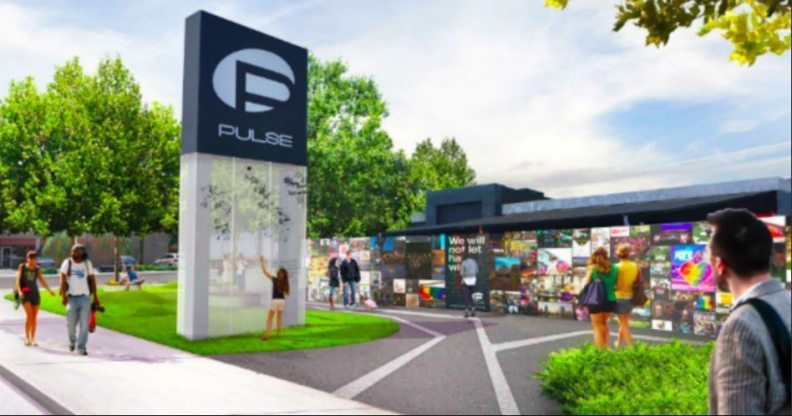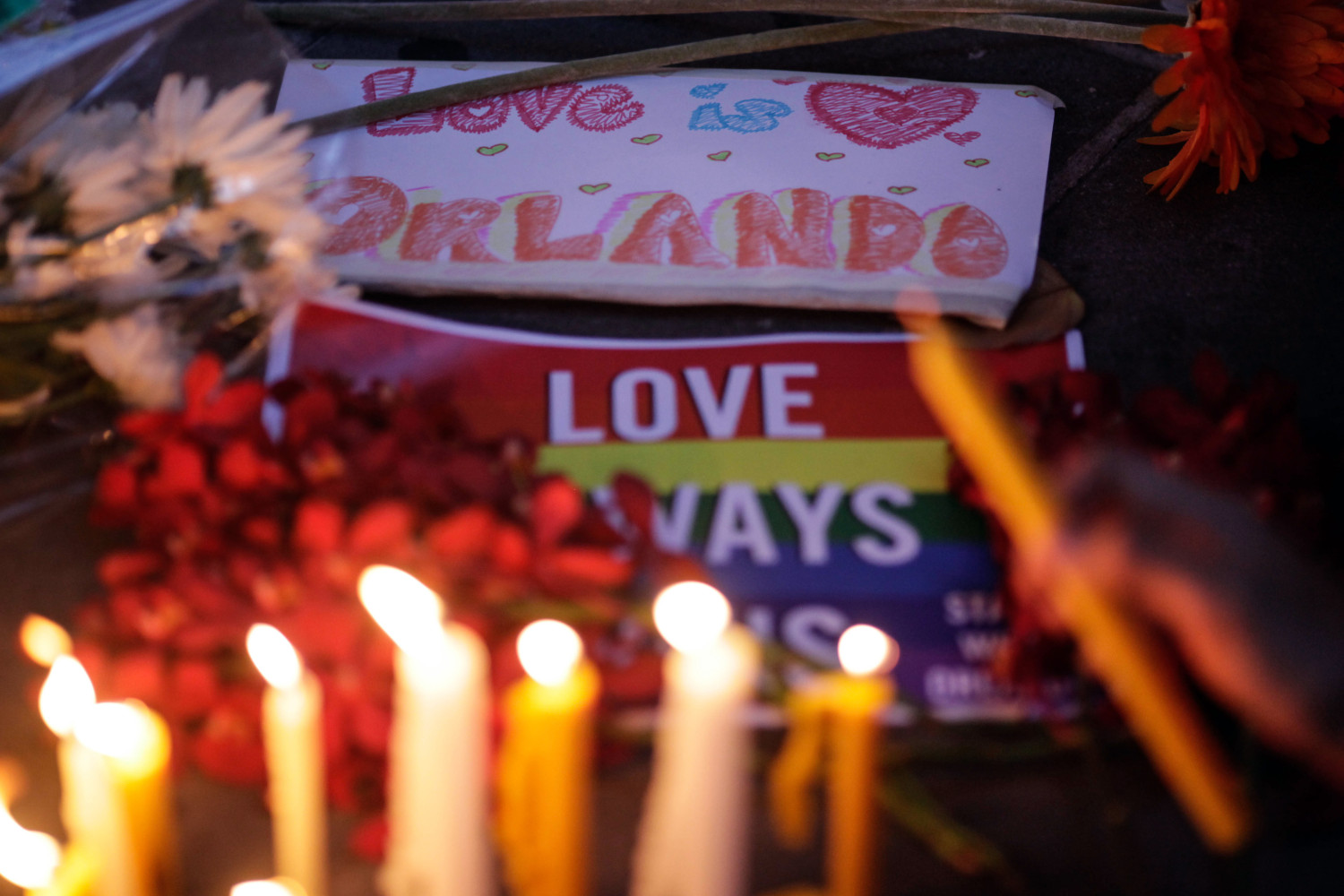Pulse shooting survivors sue club owners and Orlando police

The Pulse nightclub (Getty)
Two groups of survivors of the Pulse nightclub shooting have filed lawsuits against the club owners and Orlando police.
According to the Orlando Sentinel, two separate lawsuits were filed this week by suvivors of the terror attack in 2016.
A total of 49 people were killed at Orlando’s Pulse gay club during the horrific mass shooting in June 2016 when gunman Omar Mateen opened fire on the crowd.
At the time it was the deadliest mass shooting in recent US history, though it has since been surpassed.
The attack on the Orlando venue also saw 53 people injured at the hands of Mateen, who was killed in a shootout with police.

(Getty)
In the lawsuit against the city of Orlando and the Orlando Police Department filed on Thursday, the survivors allege that police offers violated the civil rights of club goers by not immediately entering the club and confronting the shooter.
The federal lawsuit states: “These defendants chose to allow the patrons of the club to be massacred while these defendants ensured only that they themselves were safe.”
The group of survivors filing the suit include six people shot during the shooting, 20 uninjured survivors, six family members of people killed and a former police officer who responded to the attack.
The case names off-duty police officer Adam Gruler, who had been hired to do additional security for the club the night of the attack.

Orlando police respond to the attack (Getty)
Gruler is accused of abandoning his post and later failing to enter the club to stop the shooter.
In parts of the lawsuit posted to Twitter, the suit claims that Gruler had begun to fire at Mateen at 2:02 am from outside the club, but police did not enter Pulse until 2:07 am, in which time Mateen had allegedly fired over 200 rounds of ammunition.
The lawsuit also lists another 30 unnamed police officers, listing 20 for failing to enter the building.
Another 10 officers have been accused of taking uninjured survivors and treating them like suspects, denying them contact with loved ones while being questioned.
Related: Florida leaders unveil Pulse nightclub memorial plans
Representatives for the Orlando Police Department and the city itself said in a joint statement that they could not comment without seeing the lawsuit.
The survivors in the case are represented by the Law Offices of Conrad Bennedetto, who have recently been accused of using the survivors of mass shootings as “marketing” to gain other clients, according to other survivors in the New York Times.

(LOUISA GOULIAMAKI/AFP/Getty Images)
A separate lawsuit was filed by a group of 39 survivors and victim’s family members against the owners of Pulse, Barbara and Rosario Poma.
The lawsuit filed on Friday in Orange County claimed that the club had insufficient security the night of the attack.
Keith Altman, the lawyer representing the survivors and their families, stated that the club had failed to put reasonable security in place to protect patrons.
Related: Here’s what you can do to help the victims of shootings
Altman told the Orlando Sentinel: “There is no doubt in my mind that one of the worst mass shootings in this country’s history could have been prevented — easily.
“As we allege in the complaint, had the owners of Pulse simply put reasonable and appropriate security procedures into place at the club, we do not believe the shooter would have been able to make his way into the club, armed and ready to kill.”
Poma told The Advocate that she had not yet seen the lawsuit and would not comment on it, but asked people to “keep the focus where it belongs” in the run-up to the second anniversary of the attack.

(Getty)
“What is important to Rosario and me is that we continue to focus on remembering the 49 angels that were taken, the affected survivors and to continue to help our community heal,” she said.
To commemorate the second anniversary of the Pulse massacre, activists have planned a national die-in to protest continuing gun violence.
The National Die-In will take place in Washington DC, at the National Mall, on June 12 – and with the help of Parkland survivors, organisers hope to attract as many as 100,000 participants.
The die-in will last for 12 minutes, with each of the 720 seconds representing a victim who has died in a mass shooting since Pulse.

